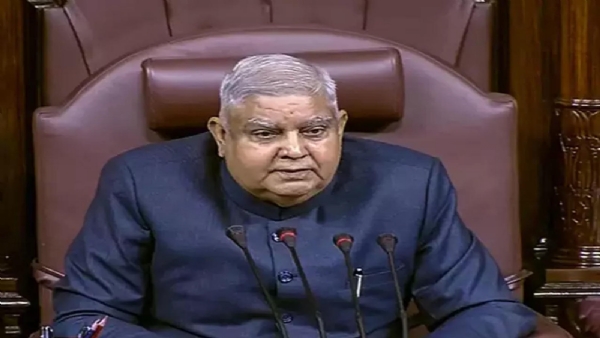Govt's 3 organs should respect "Laxman Rekha"; Jagdeep Dhankhar On SC's Scrapping Of NJAC Bill
Asserting that the National Judicial Appointment Commission (NJAC) bill had “unprecedented” support of Parliament and members “unanimously” voted in its favour, he said there is “no parallel to such a development in democratic history where a duly legitimised constitutional prescription has been judicially undone”.
Total Views | 64
New Delhi, December 08: Criticising the Indian Judiciary for scrapping the National Judicial Appointment Commission (NJAC) bill during his first maiden speech in the house, the Rajya Sabha Chairperson Jagdeep Dhankhar termed SC's judgement as an instance of "severe compromise of parliamentary sovereignty". Hitting the SC, the Dhankhar said that the government's three organs should respect the "Laxman Rekha".

Asserting that the National Judicial Appointment Commission (NJAC) bill had “unprecedented” support of Parliament and members “unanimously” voted in its favour, he said there is “no parallel to such a development in democratic history where a duly legitimised constitutional prescription has been judicially undone”.
“…the Parliament in a much-needed historic step passed the 99th Constitutional Amendment Bill paving way for the National Judicial Appointment Commission (NJAC). There was unprecedented support for the above. On August 13, 2014, the Lok Sabha unanimously voted in its favour with there being no abstention. This House too, passed it unanimously on August 14, 2014, with one abstention. Rarely in Parliamentary democracy, there has been such massive support for Constitutional legislation,” Dhankhar said.
In his address on Wednesday, the vice president said that democracy “blossoms and flourishes” when the legislature, the judiciary and the executive adhere to their domains. “Any incursion by one, howsoever subtle, in the domain of other, has the potential to upset the governance apple cart,” Dhankhar added.
Also Read | VP Dhankar enters collegium system debate, slams SC in presence of CJI for junking NJAC Act
Dhankhar's remarks also come in the backdrop of recent run-ins between the government and the judiciary over the appointment of judges. "We are indeed faced with this grim reality of frequent incursions. This House is eminently positioned to take affirmative steps to bring about congeniality amongst these wings of governance. I am sure you all will reflect and engage in a way forward stance," the vice president said.
It is an institutional seamless connection marked with mutual trust and respect that generates an ecosystem best suited for serving the nation, Dhankhar stressed.
.
.
Bharati Web
Mes, Pune







